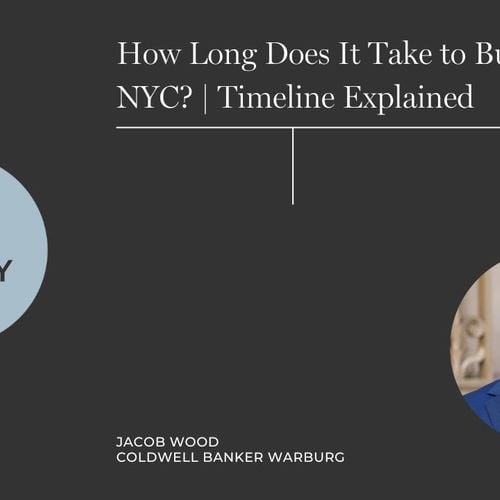From Contract to Co-op Board Approval
The most important thing to realize about having our offer accepted by the seller for a New York City home is that there is no ‘binder’ system in New York like there is in the rest of the country. An accepted offer is nothing more than a handshake. Until a contract is fully executed, a seller can negotiate with other buyers, tell you they’re doing so… or not tell you they’re doing so. For this reason, it’s in our interest for the due diligence period to go quickly and smoothly.
If you chose a real estate attorney who does the bulk of their business in Manhattan co-op and condo closings, we should be in good shape. The circle of closing attorneys who do most of the business in Manhattan is small, and you want one of them. They know the buildings, and they know each other. We want an attorney who is going to be a bulldog about following up with the managing agent regarding their due diligence questionnaire and reading of the board meeting minutes, as managing agents are known to need multiple follow-ups before returning any sort of correspondence.
The due diligence questionnaire is where we find out about the percentage of renters in the building, any litigation, and other issues that can affect financeability. The board meeting minutes are where we learn of any upcoming expenses that might not be reflected in the annual financial statement, such as leaky roofs, pest issues, as well as upcoming construction, such as façade work or a lobby renovation. Brick Underground offers a helpful breakdown of what buyers should expect their attorney to review.
While we certainly want to be aware of these issues, a longer-than-necessary due diligence period simply gives the seller time to shop around our offer.
Moving from Accepted Offer to Fully Executed Contract
Throughout this period, I’ll follow up with your real estate attorney daily to make sure contract negotiation and due diligence are coming along smoothly. If I need to have the listing agent ask the seller to compel the managing agent to act more quickly, I certainly will.
After about ten business days, your attorney will present you with a draft of the purchase contract and due diligence report for your approval. They’ll render their opinion on the financeability and overall strength of the building, and explain to you the terms of the purchase contract. This guide from Nolo gives a good overview of what to expect in that contract. In general, they’re fairly boilerplate—fill-in-the-blank—with standard Buyer and Seller Riders each attorney adds to solidify any special terms of our transaction.
During this time, we will certainly look at other homes. The listing agent will likely continue to show the home we have a deal on, and we should continue to explore our options as well. You never know when our seller will receive a higher offer, or when we’ll find out something about the building during due diligence that is disqualifying. Regardless… never be so attached to an opportunity that you wouldn’t accept a better one.
If you haven’t yet chosen your attorney,this post explains why local experience matters.
If you have further questions about the contract signing process in New York and how to maximize your chances for success, please feel free to reach me anytime at my contact info listed below. This is Jacob Wood, your New York City real estate broker.
Check out this article next

What to Do After You’re In Contract
Let’s discuss what to do once your home is in contract to prep for a seamless closing.As a seller, once we’re in contract, there’s not…
Read Article


